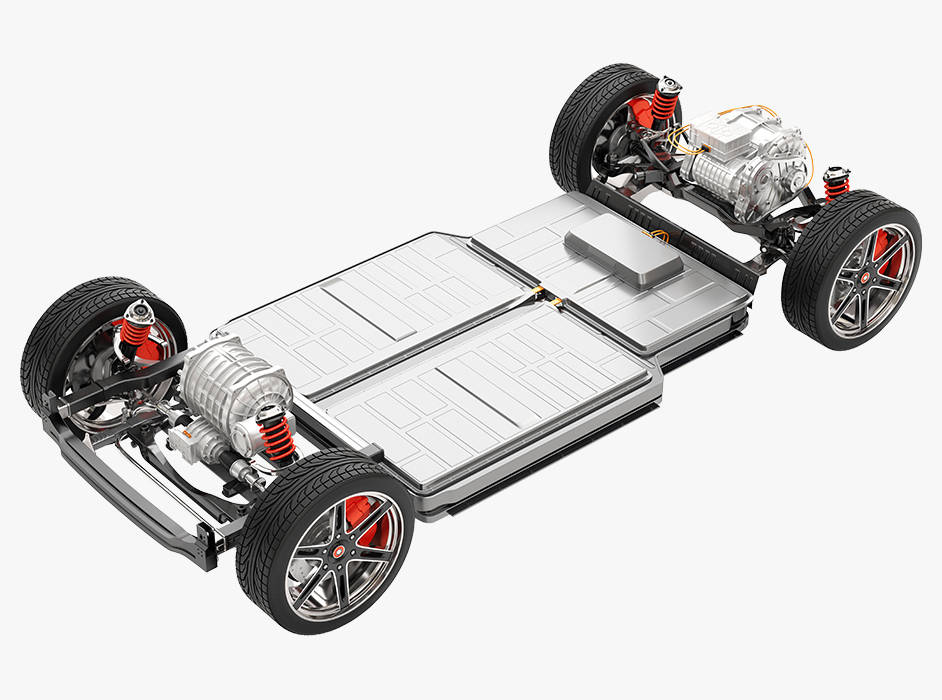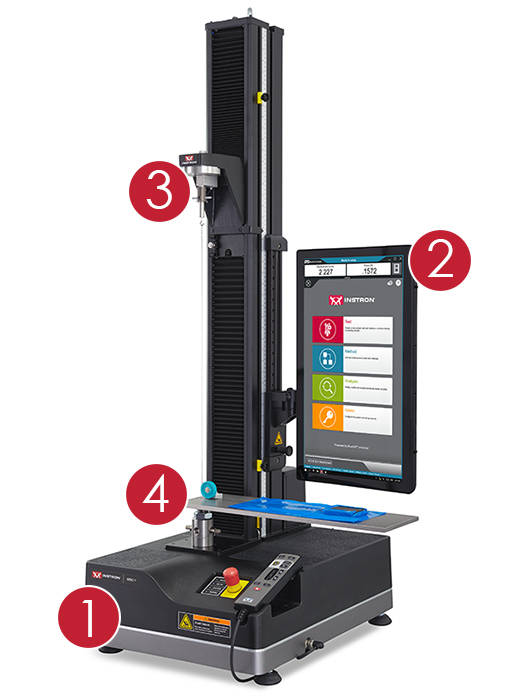How to Perform a Test to ISO 8295
The ISO 8295 test method is used to investigate the static and dynamic frictional properties of film and sheet plastics when sliding against either itself or another material. This method is intended to be used for non-sticky plastic film and sheeting of up to 0.5 mm in thickness. To perform this test, the specimen is supported on a friction table consisting of a horizontal test table, a sled, and a driving mechanism which uses a pully to produce a relative motion between the sled and the test table. One piece of the specimen is attached to the table with double-sided adhesive tape while the other piece is secured to the sled in the same way. The test machine then drags the sled across the table at a constant rate of displacement, causing friction between the two pieces of material. The force is recorded, and test results are calculated. As always we suggest reviewing the full ISO 8295 standard to fully understand the testing requirements.
最高クラスの6800シリーズ試験機のカタログ
インストロン6800シリーズ万能材料試験機は、他に類のない精度と信頼性を提供します。特許申請中のオペレーター保護機能に基づき、最新のスマートクローズエアキットおよび衝突緩和機能を搭載した6800シリーズは、材料試験をかつてないほどシンプルに、スマートに、安全にします。
2530シリーズ低荷重ロードセル
インストロン2530シリーズロードセルは、インストロンの任意の低荷重試験機とともに使用するよう特別に設計されています。荷重容量の範囲は±5~±100 N(0.5~10 kgf、1.12~22.5 lbf)であり、測定範囲が広いため、ロードセル容量の1/500までの荷重測定が可能です。
2580シリーズロードセル
インストロン2580シリーズロードセルは、5900および6800シリーズ試験機とともに使用するよう特別に設計されており、読み値の0.5%の精度で荷重容量の1/1000の荷重を測定する能力といった優れた性能を提供します。
2810-005摩擦係数測定治具
インストロンの2810-005摩擦係数測定治具は、ASTM D1894またはISO 8295規格を用いて、プラスチックフィルムおよびシートの静的および動的な摩擦係数を測定します。


